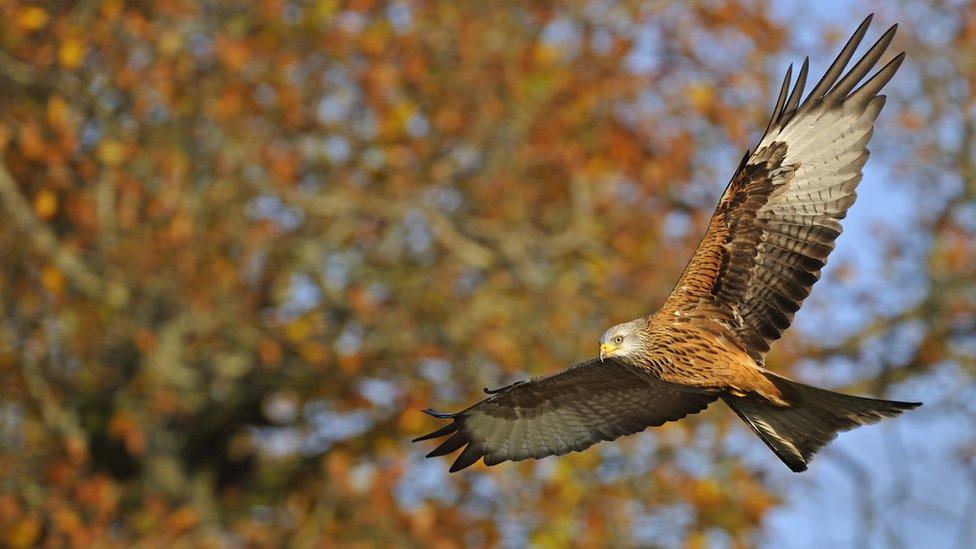Hen harriers fledge in record numbers in northern England
- Published
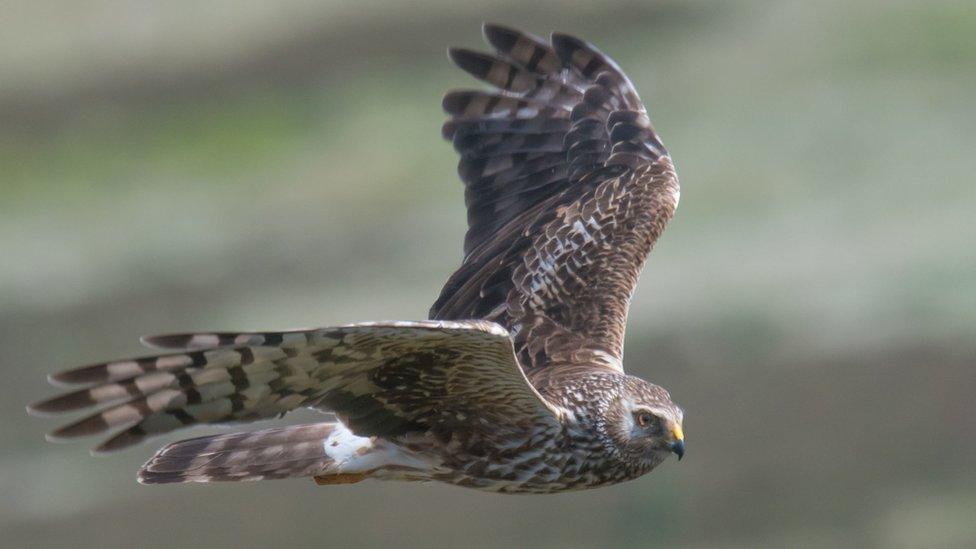
Hen harrier numbers plummeted in 2013 with no chicks fledging
The highest number of rare hen harrier chicks for more than a century have fledged across the north of England.
Government conservation agency Natural England recorded 119 leaving nests across County Durham, Yorkshire, Northumberland, Cumbria and Lancashire.
However, they remain England's most threatened bird of prey.
Agency chairman Tony Juniper said progress made in the past year was "very encouraging" but the birds still faced illegal persecution.
"Despite this year's success, we clearly still have a long road to travel to see hen harrier numbers truly recover to where they would naturally be without illegal persecution - with many birds sadly still going missing," he said.
"We are committed to continuing to work with our partners to drive down persecution rates and achieve a permanent long-term recovery."
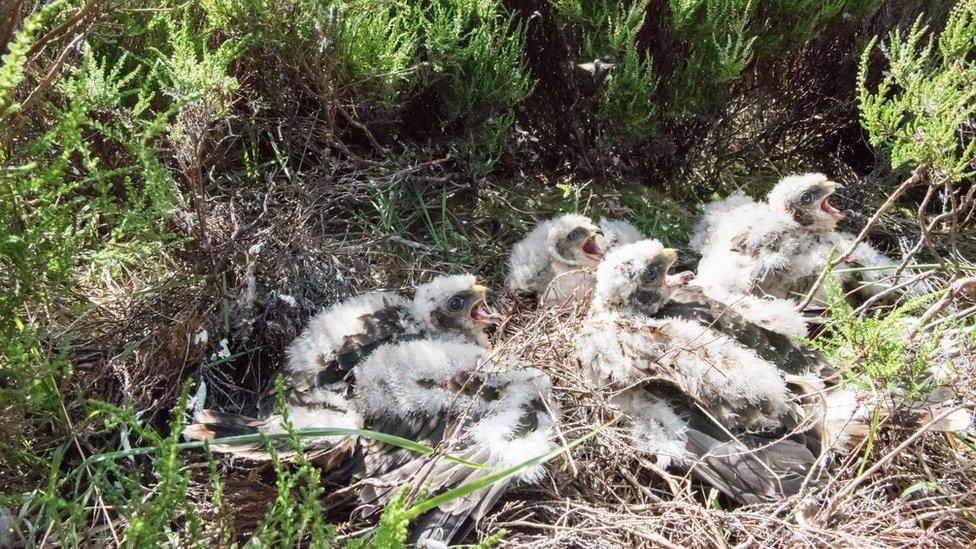
Fledged birds have grown wing feathers large enough for flight
Hen harriers were once found across upland and lowland Britain but, since 1830, have become exceptionally rare.
They have been protected since 1954 but still face illegal persecution because they prey on red grouse chicks to feed their young, bringing them into conflict with commercial shooting estates.
In 2013 no chicks successfully fledged, prompting warnings they were facing extinction in England.
Since 2016, when just eight chicks fledged, there have been six successive years of increases, with 49 nests recorded in 2022, of which 34 were successful in producing chicks.
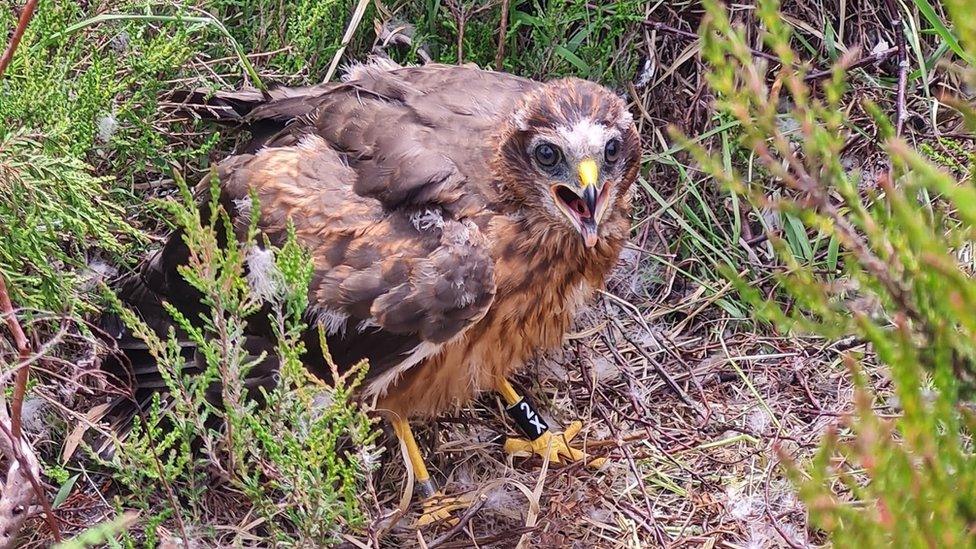
The National Trust announced breeding success earlier in the month
The most nests - 18 - were recorded in Bowland in Lancashire, with nine in Northumberland, 10 across the Yorkshire Dales and Nidderdale, seven in the North Pennines and five in the Peak District.
The fledged chicks include 13 taken from four nests on grouse moors to protect gamebirds.
They were reared as part of the brood management trial, which aims to change attitudes among the moorland community and reduce persecution.
The trial is part of a government hen harrier action plan published in 2016 which also includes issuing licences to allow the feeding of hen harriers to stop them targeting grouse.
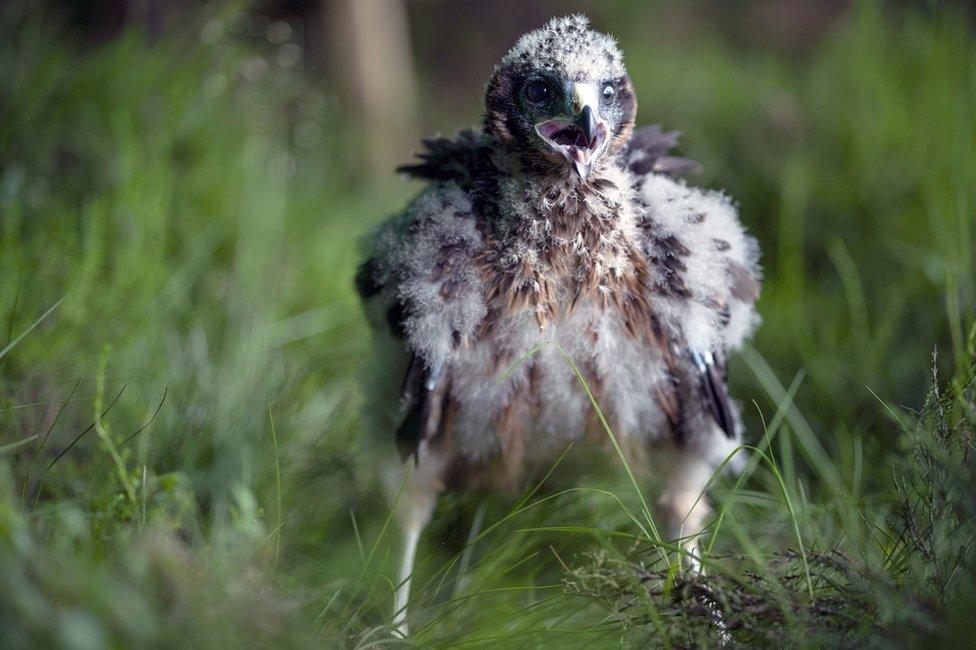
Hen harriers feed their young with the grouse chicks that shooting estates breed for sport
Natural England is working with the National Wildlife Crime Unit to improve how police and other organisations can work together to tackle persecution of birds of prey.
Bird charity the RSPB said it welcomed the record breeding season but pointed out the birds were still under threat and urged the government to take action.
"The risk of these young birds being illegally killed after leaving the safety of their nests remains very real," a spokesperson said.
"That is why we are calling on the UK government to provide resources to support the conservation of hen harriers and ensure that existing wildlife protection laws are better enforced."

Follow BBC North East & Cumbria on Twitter, external, Facebook, external and Instagram, external. Send your story ideas to northeastandcumbria@bbc.co.uk, external.
Related topics
- Published23 August 2022
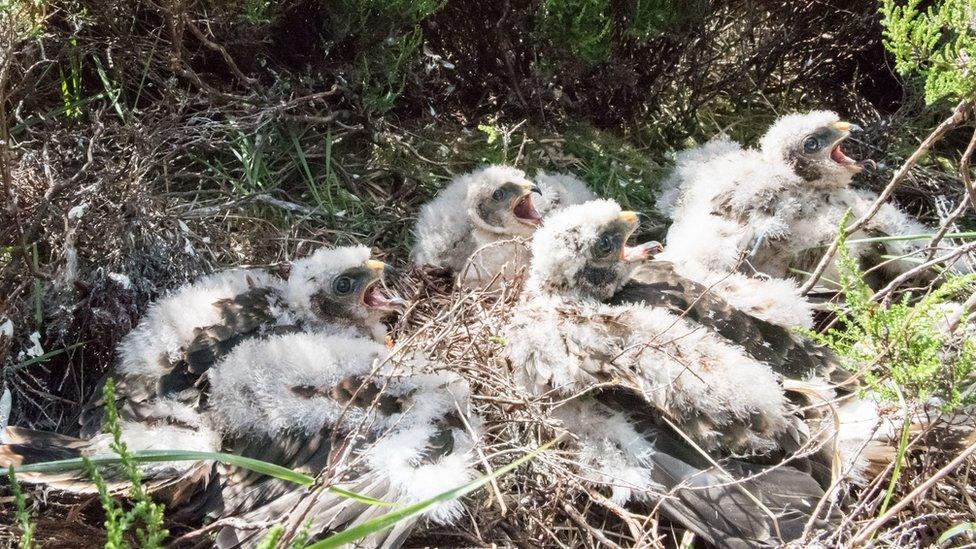
- Published21 May 2022
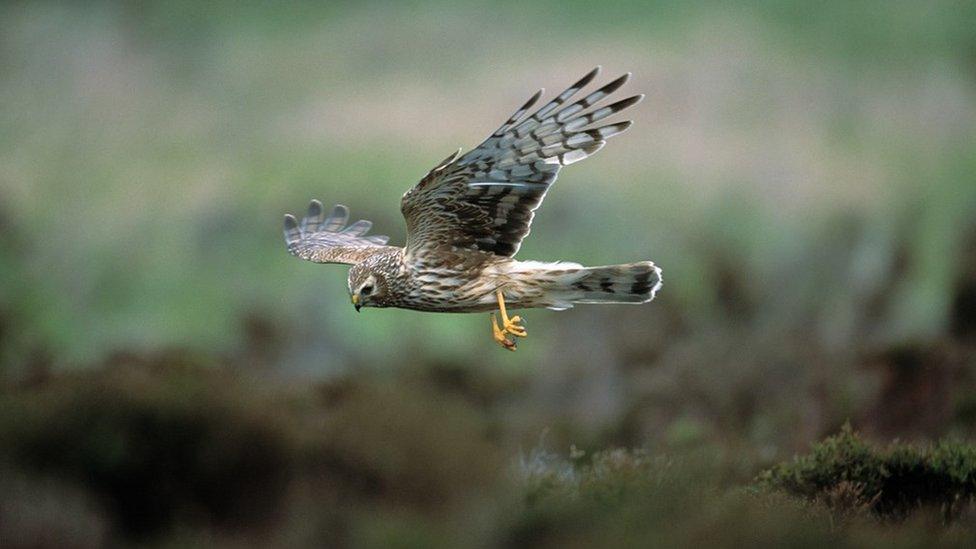
- Published9 August 2021
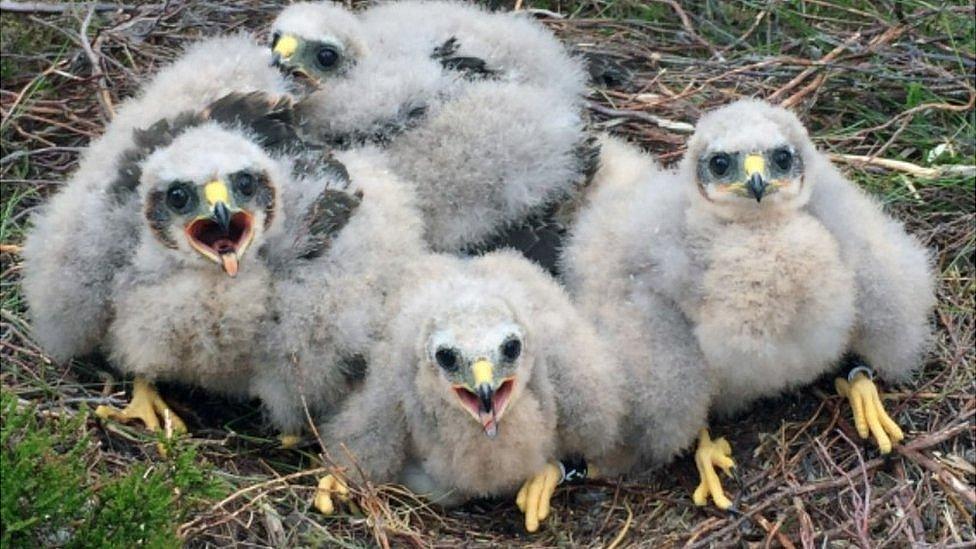
- Published9 August 2021
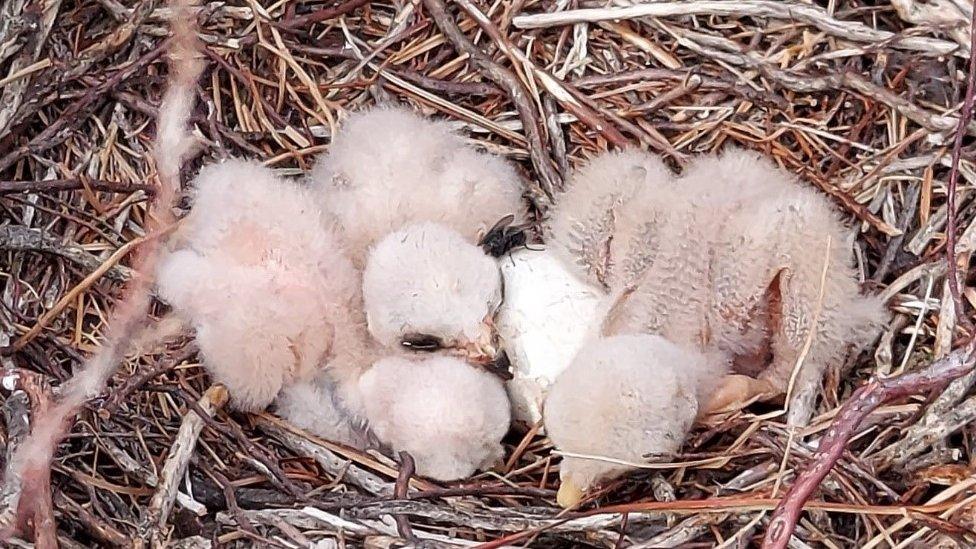
- Published15 May 2020
